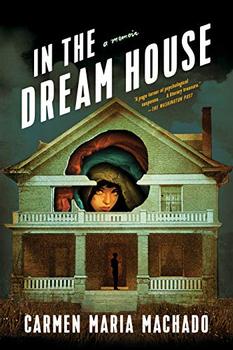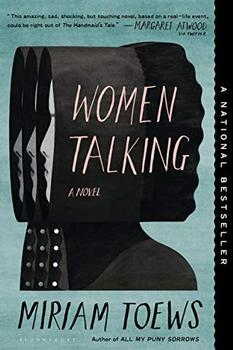Summary | Excerpt | Reviews | Beyond the book | Read-Alikes | Genres & Themes | Author Bio

The Story of a Private Investigation
by Erika KrouseIn her memoir Tell Me Everything: The Story of a Private Investigation, Erika Krouse becomes involved in the intricacies of an explosive rape case. Krouse, a private investigator, is ambitious. But she also has a dark history of sexual assault that creates an anxious duality: listening to traumatized women while managing her own trauma.
"I became a private investigator," she writes, "because of my face." For a reason she doesn't quite understand, except that perhaps she looks kind, strangers confess to Krouse previously untold secrets, desires and feelings. It is why a criminal lawyer named Grayson (no last name given) hires her. He needs someone to dig at and reach the truth.
The story begins with a student named Simone Baker. (Names of all the principals have been changed.) One December night, 20 football players and high school recruits showed up to a party at her house. As the party raged on, Simone, who was drunk, went to lay down. Some football players followed her into her bedroom. Several raped her while the rest looked on.
More of a legal story than a crime story, Krouse's memoir traverses the peaks and valleys of her involvement in a lawsuit undertaken following Simone's rape and predicated on Title IX, the civil rights law that protects people from gender-based discrimination in educational settings. "This case is different," Grayson tells her, "because we're claiming that it's a system of sexual abuse … That's going to be the hard thing—proving that the school's decision makers knew about it. Because if they did, they'll deny it all over the place."
Upon hearing the details of the case, Krouse's instincts are to turn down the job. She changes her mind when she sees how hopeful Grayson is. She writes, "He seemed to think something could actually be done—that he could be the one to make things better, to change things forever. It struck me like an aftershock: I would do anything to feel like that."
She doesn't tell him that she has a conflict of interest, due to having been sexually assaulted herself, beginning at the age of four, by a man she refers to as X. The abuse lasted three years, and the consequences of trauma have been endless: anxiety, attachment issues, self-loathing. She can't dream, she struggles with memory, she is fearful at odd times.
"We're just talking," is a phrase Krouse uses to get the accusers (and the accused) to talk more freely. Conversational and non-threatening, it gives the appearance of chit-chat. Her first interview is with Calliope, who was raped the same night as Simone and by two of the same perpetrators: King Chambers and Zachary Mooney. Another student named Ivy comes forward and says she was raped that night as well.
The backdrop of the story is collegiate football and the violent and misogynist culture surrounding it. While the perpetrators come across as entitled, narcissistic and complicit, it is their coach, Wade Riggs, who seems truly amoral. He has the power to create change but excuses his players' behavior, in part by blaming it on alcohol. Krouse reminds the reader that the culture of crime is defined by the culture of the place where the crime is committed.
In this difficult story, we are given a time-out while Krouse documents falling in love with an acupuncturist named J.D. Both she and J.D. are commitment-phobes because of past relationship failures but neither can stay away from the other. Their awkward but sweet love story, though told in brief passages, reminds the reader there are beautiful non-violent men that exist in the world.
Krouse manages multiple themes. A lot of her memoir is interviews. A chunk of the story is what happens after you are raped, how the brain is damaged from the trauma (see Beyond the Book). She deftly juxtaposes college campus assaults with her own rape (and its consequences) without overwhelming or negating one with the other. The stories breathe separately. And yet in unison.
One of the more powerful passages — which appears mid-book, after she's already interviewed a host of accusers and accused — shows her concern over the racial dynamics of this particular case. The accused are all black, most of the accusers are white. She wonders, "Were bigots going to be our witnesses? ... Was the lawsuit itself racist, even if Simone and Grayson weren't? At that moment it was looking increasingly like To Kill A Mockingbird: white girls suing Black men for sexual assault. Of course, unlike in Harper Lee's book, this attack wasn't made up … But it was getting more complicated than simple good and bad, victim and predator."
Although rape is a grim subject, I managed the details surrounding it without flinching. Where I struggled was in reading the scenes with the author's cold and empathy-deficient mother, who asks, after Krouse tells her of her sexual assaults, "What do you want me to do about it, Erika?" Perhaps strategically, this depiction of her mother reflects elements of the larger story. Victims become opaque once they say out loud, "I have been raped." They are othered and ignored, belittled and mocked.
Memoirs are personal, and this one is painful: monsters on one side, suffering on the other. But there is more. Krouse explains the paper trail of depositions, grand jury testimony and prosecutorial discretion, while also reflecting on the larger issues behind the case. There is a passage in the latter part of the book when she says to Grayson, dispirited, "I don't understand how people can hurt women with absolutely no consequence." She is talking about herself and X and those terrible years. She is talking about the women who were raped at a college party while intoxicated, as if they were objects to be abused for pleasure. She is talking about the cruelty and injustice in a world where rape happens but is still considered an unseemly and messy subject.
Although Krouse's memoir doesn't exactly answer her own question about hurting women, it compels the reader to think about rape and injustice in a profound way. Her story goes deeper than the crime itself and reflects on the why. Why rape? Why football players? Why black men? Reading it, I was reminded of two things. One is that horrible things happen. More importantly, though, the sexual assaults of women and girls often go untold because the culture insists upon silence when women have been brutalized, and silence when women are in pain.
Erika Krouse wholeheartedly rejects this silence.
![]() This review was originally published in The BookBrowse Review in April 2022, and has been updated for the
April 2023 edition.
Click here to go to this issue.
This review was originally published in The BookBrowse Review in April 2022, and has been updated for the
April 2023 edition.
Click here to go to this issue.

If you liked Tell Me Everything, try these:

by Carmen Maria Machado
Published 2020
A revolutionary memoir about domestic abuse by the award-winning author of Her Body and Other Parties.

by Miriam Toews
Published 2020
Based on real events and told through the "minutes" of the women's all-female symposium, Toews's masterful novel uses wry, politically engaged humor to relate this tale of women claiming their own power to decide.
We must believe in luck. For how else can we explain the success of those we don't like?
Click Here to find out who said this, as well as discovering other famous literary quotes!
Your guide toexceptional books
BookBrowse seeks out and recommends the best in contemporary fiction and nonfiction—books that not only engage and entertain but also deepen our understanding of ourselves and the world around us.